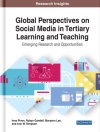Since most research on work focuses on paid work, and most literature on education concentrates on schools, it is not surprising that studies on the relations between work and learning emphasize the relations between paid employment and organized education. This unique book deals with an area that has been rarely covered in the literature on work and education: the connections between volunteer work and informal learning. Through a variety of examples, ranging from the Red Cross to teacher-labourers, from cooperatives to social housing, and from participatory democracy to environmental social movements, this volume examines the learning dimension of volunteer work in different contexts. It also considers the special case of volunteerism among recent immigrants. The case studies analyze three basic types of voluntary organizations: those providing social services, representing local communities and mobilizing for social change. The chapters include profiles of the actual work their members do and detailed accounts of the learning practices they are engaged in during their work, and the impact of such learning on their personal and professional development. The concluding chapter offers a comparative analysis, practical recommendations and steps for further research.
Innehållsförteckning
Acknowledgements; List of Tables; List of Abbreviations and Acronyms; Series Editors Introduction; 1: Introduction; 2: The Emergence of an International Teacher Education and Research Collaboration; 3: Learning to Teach in Tanzania: Teacher Perceptions and Experiences; 4: Teachers’ Understandings and Implementation of Learner-Centered Pedagogy; 5: Working Lives of Teachers: Social and Material Constraints; 6: Testing and Teaching: The Tanzanian National Exams and Their; Influence on Pedagogy; 7: Teachers’ Conceptualizations and Practices of Inclusion; 8: Gendered Aspects of Classroom Practice; 9: Classroom Discourse; 10: International Collaboration: Processes, Benefits, Tensions, and Conclusions; Notes on Contributors; Index.












